I remember as a child how exciting it was to find a bird nest that had eggs or nestlings in it. Now that I'm an adult, I still get excited when I find a bird nest, especially when its on my own property. I work to make my 1.5 acre lot as bird friendly as I can, so its nice to see that hard work payoff.
It's been a great spring / summer for watching nesting birds in my yard. I've been fortunate to witness and photograph several nesting species.
First on the list is the Eastern Bluebird. Out of the four bluebird houses I have set up, there have been a total of 6 broods raised this year.
They can be quite competitive with one another when it comes to nesting territory so their houses need to be spread out. I try to spread mine out at a minimum of 75 yards...but what I have been reading lately says they should be 100 to 150 yards apart. I currently have three houses on my property and a fourth one on my neighbors property.
A few days after hanging this Fuchsia plant on my front porch overhang the House Finches moved in. It was fun to watch them at such a close range - from egg to fledgling.
My 4 year old daughter was especially fond of them. She asked to be picked up every time we walked by them so she could have a peak.
One cool fact about House Finches that I learned from the All About Birds website is when nestlings defecate, the feces are contained in a membranous sac, as in most other birds (shown in the second house finch photo). The parents eat the fecal sacs of the nestlings for about the first week. In most songbird species, when the parents stop eating the sacs, they carry the sacs away and dispose of them. But House Finch parents do not remove them, and the sacs accumulate around the rim of the nest (shown in the above photo).
Another nearby nest in my backyard belonged to this cute little Chipping Sparrow.
I found at least three different Chipping Sparrow nest along a row of Leyland Cypress trees in my backyard.
...baby Chipping Sparrows.
Chipping Sparrows commonly nests in small evergreen shrubs or trees.
Close by in a flowering plum tree was the nest of a Northern Mocking bird pair.
I had to act quickly to get this next photo as Mockingbirds are very aggressive defenders of their nest. I was NOT welcome here!!
...there were three Mockingbird babies in this nest.
Below is a baby Killdeer that was passing through my front yard. They often nest in a nearby grass field.
...cute little buggers aren't they?
It was tough to get a good photo of these birds. They never seem to stop moving. It's always neat to watch the adult Killdeer do their broken-wing act. Its purpose is to lead predators from the nest by putting the focus on them.
Last but not least is my Purple Martin colony.
This is my second year at being a Purple Martin landlord. Last year I had 2 pair; this year there are 6 pairs. I have learned a lot about these birds in the last couple years. It's definitely been a rewarding experience!
Here in the eastern part of the United States, Purple Martins nest almost exclusively in man-made housing.
Well, that should pretty much cover it for now. But stay tuned, you never know what might show up next!


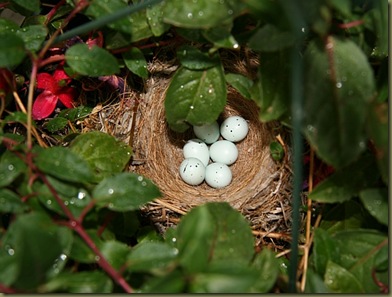
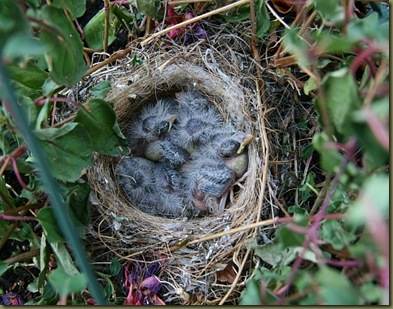
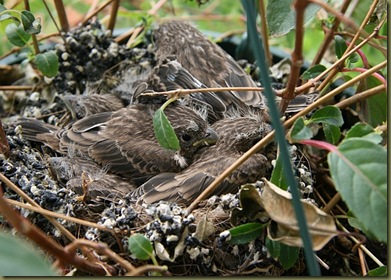
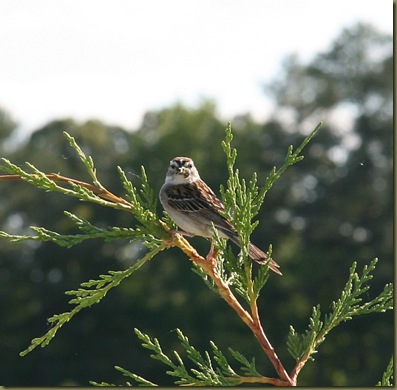
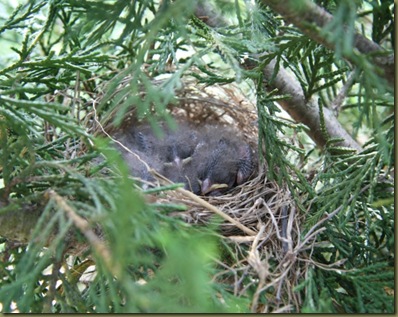
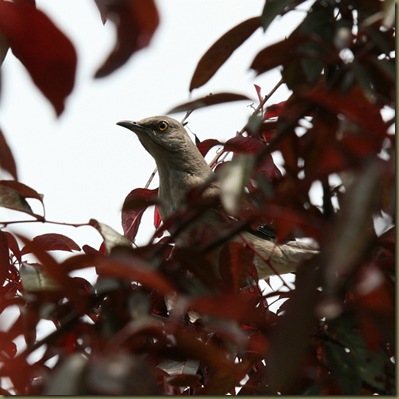

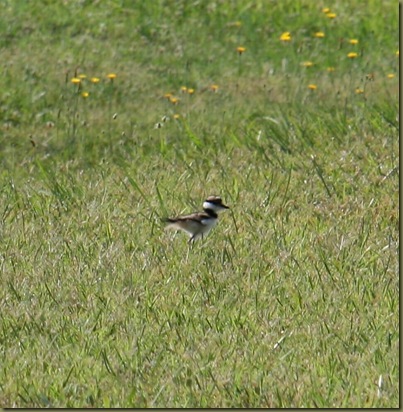
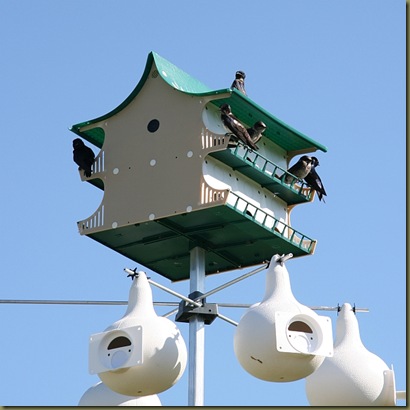
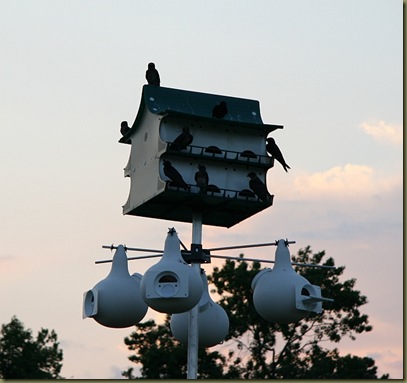
2 comments:
How exciting it is to find bird nests! And how sad the nest looks when they leave. I get so much pleasure out of bird nests, I save them and bring them indoors for "decoration". My grandson loves looking at my fake blue eggs. He keeps waiting for them to hatch. Ha!
Your pics were wonderful, Alan. If you ever paint one of the bluebird nest, let me know!
Just found this blog today. Great photos. I wanted to let you know of my Purple Martin site that is 100% dedicated to Purple Martins and swallows. Purple Martins-R-Us.com
Good luck to you and your colony next spring!
Post a Comment